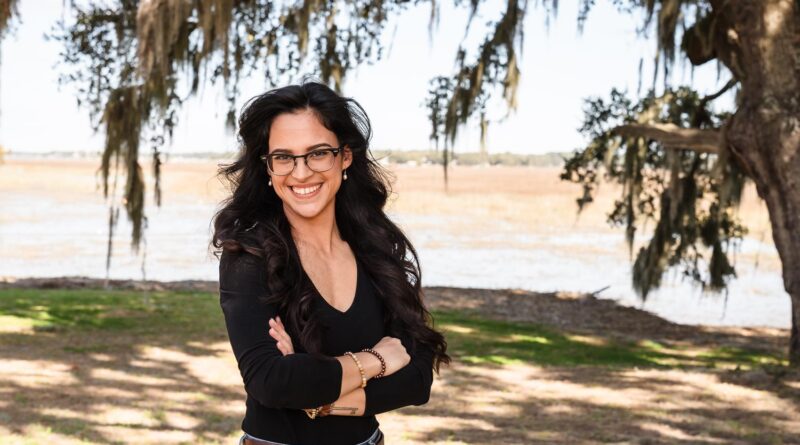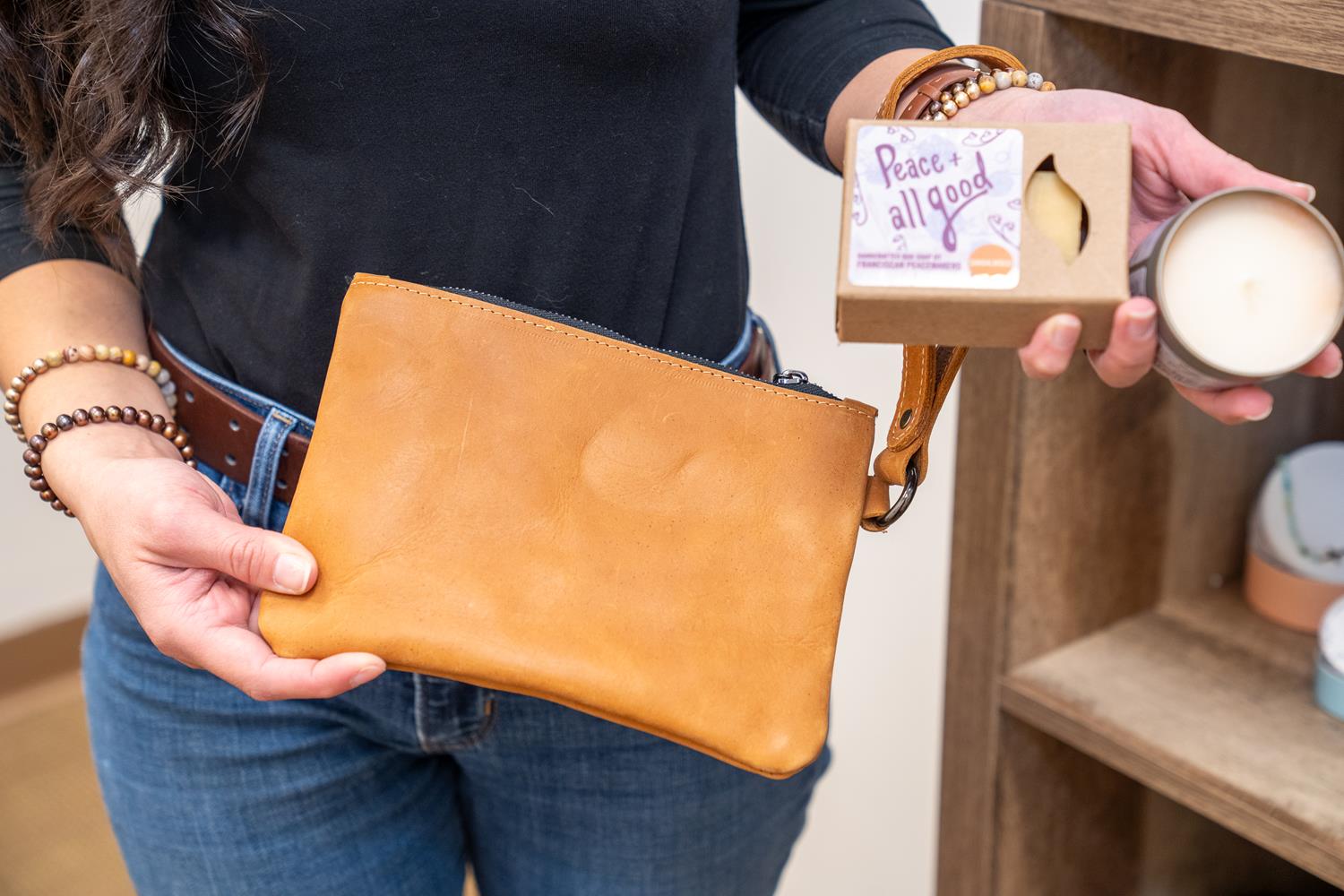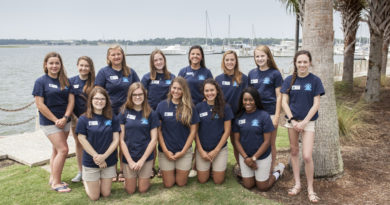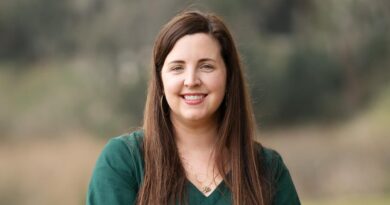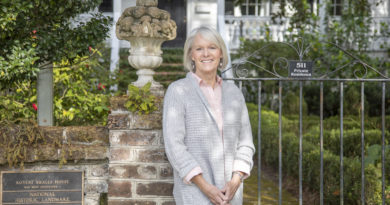Rachel McBride
The Helianthus Project
story by JENNIFER BROWN-CARPENTER photos by SUSAN DELOACH
 Rachel McBride was born in Brownsville, Texas, a city close to the border of Texas and Mexico, where her grandparents were originally from. Rachel’s parents decided to move them to Comstock, a small community not even on the map outside Del Rio, Texas. Rachel was homeschooled and worked as a ranch hand along with her three older sisters, starting around the time she was 12 years old. She moved away to Ohio for three years before moving back home, where she received her GED and started college. She went to school online, using American Public University, and is still working on completing her degree in psychology.
Rachel McBride was born in Brownsville, Texas, a city close to the border of Texas and Mexico, where her grandparents were originally from. Rachel’s parents decided to move them to Comstock, a small community not even on the map outside Del Rio, Texas. Rachel was homeschooled and worked as a ranch hand along with her three older sisters, starting around the time she was 12 years old. She moved away to Ohio for three years before moving back home, where she received her GED and started college. She went to school online, using American Public University, and is still working on completing her degree in psychology.
Rachel and her husband met online while he was deployed. Rachel was living with her aunt and uncle at the time and working to join the Marine Corps herself. Her now-husband drove from California to Texas to meet her. Since her cousin was about to move back in and Rachel would need a new place to live, her now-husband offered to let her move in with him. They got engaged a month after living together.
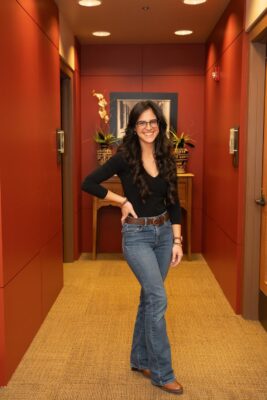 Rachel has been in victim services for a little over six years. She became a court-appointed special advocate (CASA) while she and her husband lived in California. A CASA is similar to the Guardian Ad Litem program. CASAs are court-appointed volunteers in the community who advocate for and support children who have been abused or neglected. This work is what led Rachel to learn about the foster system and the gaps in the system. One of the things that she learned was that children in the foster system are at a higher risk of being trafficked because they do not have a secure home foundation. This knowledge prompted Rachel to learn more about these risks. Rachel’s husband started paying out of pocket for her to attend conferences and take classes online, learning more about these children and the risks of trafficking for them.
Rachel has been in victim services for a little over six years. She became a court-appointed special advocate (CASA) while she and her husband lived in California. A CASA is similar to the Guardian Ad Litem program. CASAs are court-appointed volunteers in the community who advocate for and support children who have been abused or neglected. This work is what led Rachel to learn about the foster system and the gaps in the system. One of the things that she learned was that children in the foster system are at a higher risk of being trafficked because they do not have a secure home foundation. This knowledge prompted Rachel to learn more about these risks. Rachel’s husband started paying out of pocket for her to attend conferences and take classes online, learning more about these children and the risks of trafficking for them.
Rachel had her share of setbacks while she was trying to enlist. She had dealt with asthma as a child and had to go through many medical hoops. They disqualified her, and she kept trying to fight it.
During this time, Rachel continued learning about human trafficking. When she and her husband moved to Beaufort, she realized the lack of education and resources in the Lowcountry for victims of human trafficking. She was frustrated that it seemed as if no one was doing anything about it. Her husband encouraged her to be the one to do something. “He told me that if it was that big of an issue and if I really wanted to make a difference, then I needed to quit talking and do something about it,” Rachel laughs. Rachel had her hesitations. They were new to Beaufort, and she had no idea what it would look like.
Around the same time, Rachel heard back from her recruiter. He told her everything was ready to go and that he could get her to Military Entrance Processing Stations (MEPS) within the next few weeks. She was having issues at her job at the time, and now she had thoughts of a potential nonprofit for victims of human trafficking ruminating in her mind. It was a lot to think about.
Rachel took two weeks to fast and pray. “It was absolute chaos … and in the midst of the absolute chaos, there was a moment of peace and clarity.” She knew that she had to give up her dream of enlisting. It had been her dream since she was eight years old. It was a tearful time, but she knew what God was calling her to do, and she could not ignore it.
Though officially established in 2021, the idea of the nonprofit was born in February 2020. It started as a little Facebook page encouraging community volunteer opportunities. During that time, she and her husband, along with help from her sister, put together 14 newborn kits for a crisis pregnancy center, which eventually grew into The Helianthus Project.
Helianthus is the scientific term for a sunflower, representing truth, strength, and light. The goal of The Helianthus Project is “assisting minor/youth victims of human trafficking by making every voice heard through education and advocacy.”
Sunflowers are unique in how they grow. They can survive even in the harshest of circumstances. They grow up and face the sun, counting on the light for their growth. If the sun cannot be found, the sunflowers will face each other, reflecting their light until the sun is out again. Just like these flowers, these young victims of human trafficking continue to grow despite the harsh circumstances they have been found in. The Helianthus Project desires to come alongside them, show them their strength, and help them as they find their truth and light.
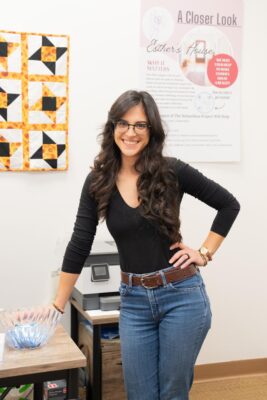 The Helianthus Project hopes to eventually open a safe house for these children. The safe house will be called Esther’s House, taken from the Bible: “Perhaps you were born for such a time as this.” (Esther 4:14). For now, they are working on their education initiative as they partner with the State Task Force for Human Trafficking and the Lowcountry Task Force for Human Trafficking. They offer free “lunch and learn” opportunities to local businesses to equip their employees on what to look for when it comes to victims of human trafficking and how to report it if they come across it.
The Helianthus Project hopes to eventually open a safe house for these children. The safe house will be called Esther’s House, taken from the Bible: “Perhaps you were born for such a time as this.” (Esther 4:14). For now, they are working on their education initiative as they partner with the State Task Force for Human Trafficking and the Lowcountry Task Force for Human Trafficking. They offer free “lunch and learn” opportunities to local businesses to equip their employees on what to look for when it comes to victims of human trafficking and how to report it if they come across it.
In the State of South Carolina, there is only one house that serves children who have been victims of human trafficking. They have ten beds, and those ten beds are full. They are actively sending children out of state simply because they do not have anywhere to place them. It can be easy to think that because the Lowcountry is such an idyllic place, this type of evil couldn’t be happening here, but it does. Last year, there were 460 cases of child trafficking within South Carolina, and the Lowcountry ranked 3rd place for the number of cases seen in the state in 2023. It was just two cases shy of being 2nd place.
We cannot let the beauty of the area blind us to the fact that these things are happening around us. When you become aware of these things, you are faced with a choice: do something about it or ignore it. There is a lot of misinformation out there, and The Helianthus Project works to help people recognize the true signs, so that they can make a difference in their community. Rachel has spent hours and hours working on the nonprofit. From the get-go, her mindset has been: “We have to do something for these kids.”
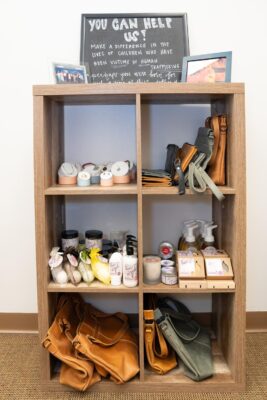 The Helianthus Project is doing everything it can to educate the community. They are open to doing training with anyone who is interested. They are strictly volunteer-run and are always looking for more volunteers to assist in their work for these children. If you are interested in becoming involved, you can find all the information on their website: www.thehelianthusproject.org. You can also support their work by shopping in their online store. Esther’s Market sells 100% handmade items created by survivors of human trafficking. They have jewelry, handbags, and more.
The Helianthus Project is doing everything it can to educate the community. They are open to doing training with anyone who is interested. They are strictly volunteer-run and are always looking for more volunteers to assist in their work for these children. If you are interested in becoming involved, you can find all the information on their website: www.thehelianthusproject.org. You can also support their work by shopping in their online store. Esther’s Market sells 100% handmade items created by survivors of human trafficking. They have jewelry, handbags, and more.
The Helianthus Project had a benefit dinner in January, which is Human Trafficking Awareness Month. The dinner was a huge success, thanks in large part to Tim Green, whose family owns The Chocolate Tree, and is, as Rachel puts it, “the patron saint of grassroots nonprofits.”
Rachel isn’t looking for fame. She is a wife and a mom, and her husband is currently stationed overseas for the next two years. Day in and day out, she gets her kids to school, does the grocery runs, helps with homework, and cleans. The same things that many mothers do. And on top of that, she is running a nonprofit, working while her kids are at school and as soon as they are in bed at night. The Helianthus Project is about 95% self-funded. As a single-income family, Rachel and her husband provide for themselves and their kids, and fund the nonprofit. It is just that important to them.
Rachel has big goals for The Helianthus Project, but the biggest and most important to her is opening the safe house. She wants to provide a home and a place to recover, allowing victims to find their safety net. These children need to be cared for and have someone to advocate for them, taking them to therapy and doctor’s appointments. “We need to take care of the next generation.”
Rachel’s friend says, “Her endless endeavor to educate the community and fight against human trafficking in her community and across the state is inspiring.” Hopefully, the community will continue to get involved in this nonprofit and make a difference in the lives of these children.

